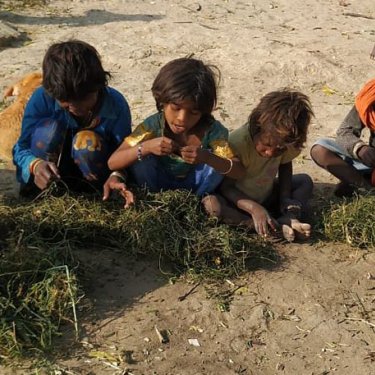Indian newspaper accused of “fake news” about lockdown’s impact on poor

Reporters Without Borders (RSF) condemns an attempt by the authorities in the Indian city of Varanasi, in the northern state of Uttar Pradesh, to censor a local newspaper that reported that members of a disadvantaged community near the city were going hungry as a result of the lockdown ordered by the federal government on 24 March in response to the coronavirus epidemic.
Vijay Vineet, a news editor for the Hindi-language newspaper Jansandesh Times, decided to a do a story on the effects of the lockdown the next day by visiting a village of 17 families who are members of the Musahar community, an ethnic minority usually regarded as “Dalit” (Untouchable).
There he discovered children eating grass that is usually given to cattle because, as a result of the lockdown, their parents are unable to work as day labourers and earn the money with which to feed their families.
The day after Vineet’s editor, Subhash Rai, ran the story together with a photo of the children, Varanasi district magistrate Kaushal Raj Sharma issued a notice accusing them spreading “fake news” at a “sensitive time” and, describing the article as a “dangerous attempt” to discredit his administration, threatened to sue them if they did not publish a correction.
Fear of prosecution
Vineet, who has worked as a journalist for 35 years, told RSF he would not make any changes to his article even if it led to a lawsuit. “I’ve been covering the problems of poverty and famine all my life,” he said. “This is the first time that a government has issued me with a notice in connection with my work.”
“It is unacceptable that journalists are harassed for having the courage to shine a light on the lockdown’s effects on the most disadvantaged sectors,” said Daniel Bastard, the head of RSF’s Asia-Pacific desk. “We calls on the Varanasi district authorities to immediately withdraw these arbitrary accusations against Vijay Vineet and Subhash Rai. Journalists must always be free to do work, and even more so at a ‘sensitive time’.”
Indian journalists are often prosecuted for covering poverty-related stories. As RSF reported at the time, Pawan Jaiswal, another reporter for the Jansandesh Times, was accused of “conspiracy to defame” the Uttar Pradesh government last year because he posted a video of children at a school being fed nothing but roti (grilled flatbread) with salt for lunch.
India is ranked 140th out of 180 countries in RSF’s 2019 World Press Freedom Index.



